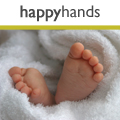Baby Clinic
Bottle Feeding
Baby milk: mixing bottle and breast
It is possible to combine the two feeding regimes of breast and bottle if you need to.
There may be many different reasons why you want to mix a bottle-feeding and a breastfeeding routine together…
• In the early days, it might be that your baby is not putting on quite enough weight – a tired new mum recovering from the birth might not be able ot produce quite enough milk herself and in this instance one extra feed a day of formula might help get a baby’s growth back on track.
• Illness or a need to be away from home might mean that bottle feeds are unavoidable.
• Feeling self-conscious in public might make you want to try bottle feeding when you are out and about, away from home.
• If you are going back to work before your baby is one year old, bottle feeding will be the only option for keeping up feeds when you are out, but you might want to ensure that your baby still feels the closeness of breastfeeding at times when you are at home, especially as this can offer a reassuring sense of continuity to compensate for daytimes when you are not around.
There could be so many other reasons why you want to mix bottle feeds with breast feeds – whether the bottle feeds are with formula or with expressed breast milk – and, despite what you might think, this can be managed with a little patience and organisation.
Tips for combining breast and bottle feeds
• Give it time
Your baby might not be so happy to take a bottle from you at first if he or she is used to breastfeeding. If this is the case, get your mum or someone else to give the first bottles when you are not around. However, don’t be too downhearted, most babies get used to a bottle quickly and are then just as happy to take it from mummy as they are another person. (See also, tips on moving from breast to bottle.)
• Be consistent
Organise yourself before you start to change your feeding habits. If, for example, you plan to breastfeed in morning and evening but need to switch to bottles in the day because you are going back to work, start to ease in a bottle feed in the middle of the day, a couple of weeks before this is going to be a regular habit. Make sure you then stick as much as you can to new habits – even at weekends.
• Ease the breastfeeds out
If you are switching from having fed and expressed busily throughout the day, to mostly bottle feeds, you will need to make sure your breasts have time to adjust. If your baby is a little older, it will probably be easier to do this, but if your baby is less than four months old, make sure you massage your breasts to loosen up any over-full boob moments in periods of the day when your baby no longer feeds by breast. You’ll be amazed that usually in just a couple of days your body will adjust to this new pattern of demand. If you are feeling sore and uncomfortable, however, do keep an eye on any risk of mastitis or blockages, and speak to your GP if you do not feel well. For more about spotting mastitis, see Overcoming breastfeeding problems.
• Keep it natural
You should find that very quickly your baby gets used to bottle feeding, but at first you might want to retain the similar intimate experience of breastfeeding. For tips on this, go to Bottle feeding: keeping it natural.
How are you doing?
Don’t feel guilty. Although some people believe that mixing breast and bottle is damaging to a breastfeeding regime, mixing the two is preferable to giving up on breastfeeds altogether.
However, see how you’re both doing. If your baby is still putting on weight at a healthy rate (according to his or her own growth charts and not simply compared with other babies the same sage), you are both well, and the occasional daily feeds are something you are both still in enjoying, there is no reason why this can’t continue even beyond your baby’s first birthday, when the formula feeds can be replaced by regular cow’s milk feeds in most cases.
If you are concerned that the demands of something like returning to work are affecting your ability to keep up feeds, or that your baby is not thriving for some reason, talk to your health visitor or GP before giving up on your new routine.
Good luck!
Related Articles
A Great Day Out at The Baby Show, Excel
Preparing Premature Infants for School
BornFree – the natural approach to bottles
Bottle-feeding: keeping it natural
Buyer's guide to feeding bottles
Buyer's guide to feeding teats
BabyBjörn venture into drinking cups
Related Products
Verbaudet, French maternity, baby and children's clothing
Tommee Tippee, Closer To Nature Electronic Breast Pump
Image Casting, Baby Foot and Hand Casts
Related Forum Topics
Forums: Baby
Reproaching a stranger for bad behaviour to their child.
Patricia6
Re: fussy eater
Clare, Mother of 2, London
Re: Second hand/ nearly new baby shops??
Clare, Mother of 2, London
Re: Has anyone tried Zita West's fertility supplements? Or what else worked for you?
Guider, Mother of 1, Leicestershire
Have Your Say
Be the first person to comment on this article, just post a comment below.






In order to post a comment you need to be a member. Join Now | Sign in